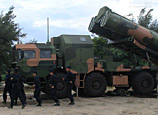
While reforms are well-intentioned, some specialists said they overstepped the mark. Governments eager for development sometimes go too far to push for reform and may face legal challenges, Kuang said.
He suggested that any reform projects must be clearly defined with clear goals and results.
Drawing up regulations should also require local and central authorities to appoint reform coordinators.
"To make sure all related departments are fully involved in reform is vital for its success," he said.
The National People's Congress Standing Committee, the State's top legislative body, approved a three-year pilot program in Guangdong province in December to allow the southern province to temporarily cut red tape for procedures subject to government approval.
If the program is successful, laws will be amended to make the program universal, however, it will be terminated if unsuccessful.
The State Council also said the reform can only be carried out when the NPC Standing Committee approved those procedures set by law.
Experts said the move marks a step forward in further limiting government power, while guaranteeing the procedural legitimacy of the proposed reform.
Ma Wen, minister of supervision, said a similar situation occurred in the mid-1980s. The country did not have legislation on trade and taxation, and the NPC Standing Committee authorized the State Council to reform the system of industrial and commercial taxes and issue relevant draft tax regulations on a trial basis.
Zhou Hanhua, an administrative law professor at the Chinese Academy of Social Sciences, said such authorization is beneficial in reducing the risk and difficulties of reforms, and it incorporates the principle of the rule of law.
The central economic work conference in December, which set up China's economic policy for 2013, has stressed promoting systematic, integrated and coordinated reforms. It also said the central government will draw up an overall plan for reform.

















 Beijing Film Academy releases list of re-examination
Beijing Film Academy releases list of re-examination


![]()
